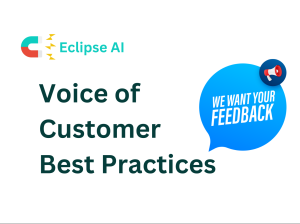1. The Landscape of Customer Success in the Digital Era:
In today’s fast-paced digital landscape, the pursuit of customer success has evolved beyond conventional methodologies. The emergence of Artificial Intelligence (AI) tools has opened new avenues, revolutionizing the way businesses approach and achieve success in retaining and satisfying their customer base.
2. AI Tools Redefining Customer Engagement:
One of the primary contributions of AI tools lies in their ability to redefine customer engagement. Through advanced analytics and predictive algorithms, businesses can gain profound insights into customer behaviors, preferences, and pain points. This knowledge serves as the foundation for crafting personalized and effective customer interactions.
3. Personalization at Scale:
AI tools empower businesses to deliver hyper-personalized experiences at scale. By analyzing vast datasets, companies can tailor products, services, and communication to individual customer preferences. This level of personalization not only enhances customer satisfaction but also lays the groundwork for lasting relationships.
4. Proactive Issue Resolution:
AI-driven technologies, particularly chatbots, play a pivotal role in proactively addressing customer queries and concerns. With natural language processing and machine learning capabilities, these tools can understand and respond to customer issues in real-time, significantly reducing resolution times and enhancing overall satisfaction.
5. Data-Driven Decision Making in Customer Success Strategies:
The integration of AI instills a data-driven culture within customer success strategies. Informed decision-making backed by extensive data analysis allows businesses to optimize their approaches. From product enhancements to communication strategies, data-driven decisions contribute to a more effective and targeted customer success framework.
6. Predictive Analytics for Churn Prevention:
AI tools equipped with predictive analytics capabilities enable businesses to identify patterns indicative of potential churn. By foreseeing customer behaviors and addressing concerns proactively, businesses can implement targeted retention strategies, preventing customer attrition and solidifying long-term relationships.
7. Automating Routine Tasks for Operational Efficiency:
The automation capabilities of AI tools free up valuable human resources from routine and time-consuming tasks. This operational efficiency not only improves overall productivity but also allows customer success teams to focus on building relationships and delivering personalized experiences.
8. Continuous Learning and Evolution of Customer Success Strategies:
AI models in customer success are not static; they continuously learn and adapt based on customer interactions. This adaptive nature ensures that the systems evolve over time, refining their understanding of user preferences and continuously improving customer success strategies.
9. Enhancing Customer Feedback Analysis:
AI tools excel in analyzing unstructured data, including customer feedback across various channels. This in-depth analysis provides businesses with nuanced insights into customer sentiments and perceptions, guiding strategic improvements and proactive issue resolution.
10. The Future of Customer Success: AI as a Cornerstone:
As businesses navigate the future, the role of AI in customer success is poised for even greater prominence. AI will continue to be a cornerstone, driving innovation and reshaping the customer success landscape. From advanced personalization to more sophisticated predictive analytics, the future promises a customer-centric approach powered by AI









